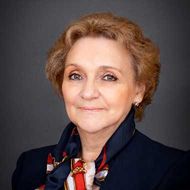- A
- A
- A
- ABC
- ABC
- ABC
- ąÉ
- ąÉ
- ąÉ
- ąÉ
- ąÉ
- HSE University
- Faculty of World Economy and International Affairs
- School of International Regional Studies
- News
- «Gender-Based Wage Disparity in India: Workplace Phenomenon or Socio-Cultural-Economic Phenomenon?»
-
School
-
Online
The School of International Regional Studies is a research and educational centre seeking to revive international regional studies as an academic discipline in Russia. The department’s world-class professors train the next generation of regional studies specialists while developing an increasingly prestigious research school.
Vinogradov A., Streltsov D., Nelidov V. et al.
Singapore: Palgrave Macmillan, 2024.
Kanaev E., Garin A., Garaeva A.
Digital Orientalia. 2024. Vol. 4. No. 3. P. 62-69.
Kanaev E., Fedorovskiy A., Kupriyanov A. et al.
In bk.: Russia and the World: 2024. Economy and Foreign Policy. Annual Forecast. IMEMO RAN, 2024. P. 105-111.
Shein S., Ryzhkin E.
Political Science. PS. ąÆčŗčüčłą░čÅ čłą║ąŠą╗ą░ 菹║ąŠąĮąŠą╝ąĖą║ąĖ, 2022. No. 89.

«Gender-Based Wage Disparity in India: Workplace Phenomenon or Socio-Cultural-Economic Phenomenon?»
The seminar was moderated by Dr. Olga Solodkova - Associate Professor, School of International Regional Studies of the Faculty of World Economy and International Affairs, HSE University.
Suku Bhaskaran mentioned the most important questions that he has discovered and researched. The first question is whether a gender- based wage disparity pervasive in India. Second was related to the issue why there is a discrimination between male and female. Then it was paid attention to the comparative study of women’s workplace discrimination in India and in developed countries. Moreover, there were observed issues about how the problem can be solved and whether it is possible to generalise the findings of made study.
As speaker highlighted, in India the problem needs ti adopt an inclusive approach because of some reasons. These problems include socio-cultural, economic and mostly the demographic situation. The showed results of the professor’s research pointed out that Female workforce participation rate in India is among the lowest in the world (21%). Moreover, in India income is distributed in one of the most inequitable way.
All of these problems, as it was mentioned during the speech, are lead to the woman’s role in the Indian family. Suku Bhaskaran stressed in his speech that for women family is primary, while men is main source of income in the family. Woman taking care of children and that is a reason why they leave job for some time. During this missed period woman loose her potential ability to increase her income and reach some good positions in her career.
The speaker concluded that the mentioned question is more tend to the socio-cultural-economic phenomenon.
- About
- About
- Key Figures & Facts
- Sustainability at HSE University
- Faculties & Departments
- International Partnerships
- Faculty & Staff
- HSE Buildings
- Public Enquiries
- Studies
- Admissions
- Programme Catalogue
- Undergraduate
- Graduate
- Exchange Programmes
- Summer Schools
- Semester in Moscow
- Business Internship
-
https://elearning.hse.ru/en/mooc/
Massive Open Online Courses
-
https://www.hse.ru/en/visual/
HSE Site for the Visually Impaired
-
http://5top100.com/
Russian Academic Excellence Project 5-100
- © HSE University 1993–2025 Contacts Copyright Privacy Policy Site Map
- Edit



